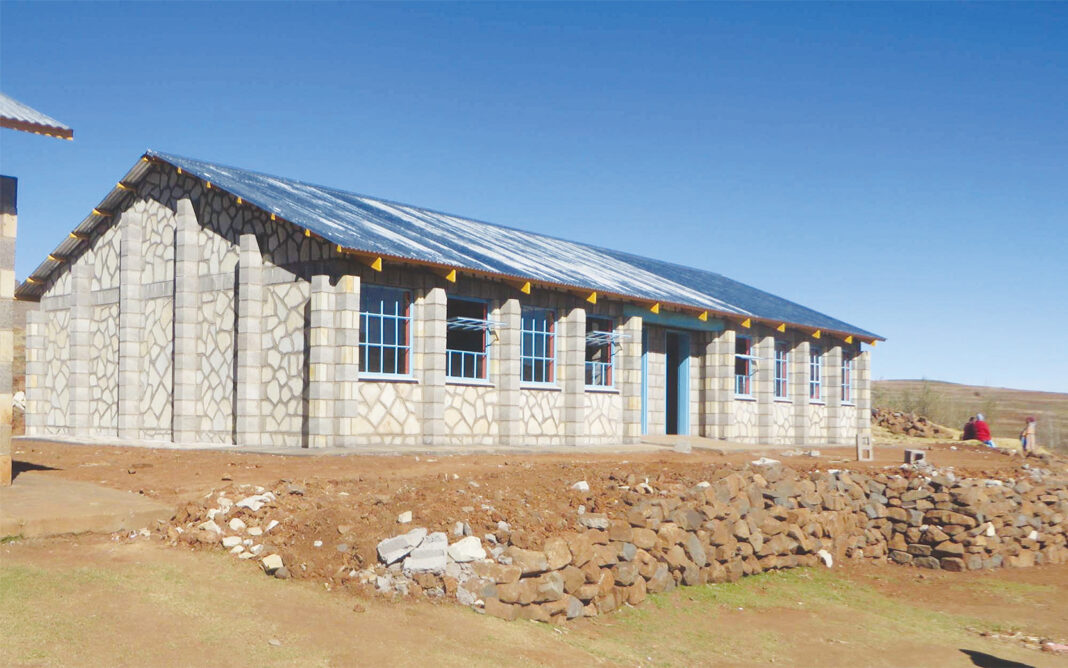By Staff Reporters
At the turn of the century, the United Nations (UN) ratified 17 Sustainable Development Goals (SDGs) to serve as benchmarks for every nation to ensure global prosperity, protection of the planet, and an eradication of poverty.
Goal 4 of the SDGs – Quality Education: Ensure inclusive and equitable quality education and promote lifelong learning – was a unique goal focused purely on education. This is the first time such a standalone education goal has been set and ratified.
According to educationists, the meaning of a quality education is one that is pedagogically and developmentally sound and educates the student in becoming an active and productive members of society. A quality education is not one that is measured purely by a test score or by how many words per minute a 5-year-old can read. To hark back to these simplified measurements is to do a disservice to both the student and the phrase Quality Education itself.
Quality education provides resources and directs policy to ensure that each child enters school healthy and learns about and practices a healthy lifestyle; learns in an environment that is physically and emotionally safe for students and adults; is actively engaged in learning and is connected to the school and broader community; has access to personalized learning and is supported by qualified, caring adults; and is challenged academically and prepared for success in college or further study and for employment and participation in a global environment.
Quality education is supported by three key pillars: ensuring access to quality teachers; providing use of quality learning tools and professional development; and the establishment of safe and supportive quality learning environments.
How has Lesotho fared and continues to fare in this regard? The situation on the ground paints a bleak picture as education continues to face age-old challenges and threats, especially in the rural and remote parts of the country.
Students of the remote village of Ha Peete in the Quthing district are forced to trek up to eight hours a day to school at Mphaki and back due to lack of public transport after the current heavy rains destroyed the gravel road between the two villages.
This was revealed by the councillor of Ha Peete, Karabo Lesala, who estimated that the village is over 20 kilometers from Mphaki where the nearest high schools are located.
Lesala told theReporter that this is one of the many causes of dropouts witnessed in the Quthing district.
He said that the road between Ha Peete and Mphaki has been damaged by the recent heavy rains, adding that public transport between the villages is no longer available because of the untenable condition of the road.
One of the students, Refuoe Chake, who lives at Ha Peete and schools at Mphaki High School, confirmed the ordeal of the learners. She said they are driven by a desire to learn, forced to walk the long distances to get to school.
The 19-year old learners told this publication that learners have to brave the bad road in the morning and after school.
Refuoe lamented that girls have to contend with being accosted by herd boys and other shady characters, who harass and threaten them with violence.
She has been walking the long distance since she started schooling. “As a result of inevitable fatigue, we do not do our school home work as best as we would like as we have other household chores to perform upon arrival at home. We leave for school at 3:00am and get there at 8:00. We then leave school after 4:00pm and get home after 9:00pm.”
The harsh and untenable conditions of learning in marginalised rural communities continue to come under the spotlight with the revelation that pupils at Molatjeng Primary School at Semonkong some 114km south-east of the capital Maseru, are forced to flock in a derelict hut that serves as a classroom.
This after the construction of classrooms meant to accommodate learners in a conducive facility, was abandoned midway by a contractor in 2010.
The school has a total enrolment of a miserly 53 pupils who take turns to use the makeshift classroom. It has only two teachers.
The plan was to build classrooms that would house pupils from Grade 1-7, with each Grade having its own classroom. Also in the plans was construction of a storeroom to harbour school property would also be constructed.
As a result, the situation is making it extremely difficult for teachers and learners to teach and study in a hut.
The school’s principal, ‘Mamahooana Kolobe, lamented the poor learning conditions which children and teachers have to endure. The thatch-roofed stone hut belongs to the local chief.
Kolobe said during inclement weather conditions, especially on rainy days, pupils are forced to stay home as rivers burst their banks.
“When the learners return to school, teachers have to re-teach the lessons taught while they were not in class,” Kolobe said.
She expressed her wish for a school to be built within safe walking distance. She added female learners have to walk in groups in order to feel safe.
Ha Long Primary School in Thaba Tseka district, some 170km from Maseru City, lacks both adequate learning facilities and teachers.
This lamentable situation is forcing learners to study and be taught in overcrowded classrooms.
The school, founded in 1972, is owned by the Roman Catholic Church. It has 130 pupils from Grade One to Six. But there are only two teachers who work at the facility.
A rickety structure that serves as a classroom accommodates learners for Grade One to Four, and has no windows while its door does not close properly, exposing both teachers and pupils to inclement weather conditions.
The classroom also is used as storage and the teachers’ office while the floor is in bad state as it has potholes.
Simollang Tjokosela, the principal who has held this position since 2019, told theReporter that the work load is excruciating hence a need for a number of tutors to help alleviate the burden borne by the two teachers.
Tjokosela said the need of more building is crucial because during winter many children fail to go to school. The thatched roof of the school and the half closed door brings coldness into the classroom leading to the children getting sick.
The facility has no Grade Seven as it is gripped by shortage of building to accommodate more learners.
Tjokosela also disclosed that shortage of furniture and learning materials are another major constraint. Children sometimes go outside the classroom to learn during the sunny days to beat the cold.
According to a recent ministry of education survey, 43 percent of primary school pupils have no furniture, while many others have chairs or benches, but no desks upon which to write. With regard to learning materials the ministry of education and training, through a national book loan scheme, has made impressive progress in providing basic textbooks – an average of 4.4 books per primary pupil – but shortages of supplementary materials such as teachers guides and pupils workbooks are apparent.
These are some of the challenges facing Lesotho’s education system. As Lesotho heads to the polls tomorrow, do politicians have solutions?








